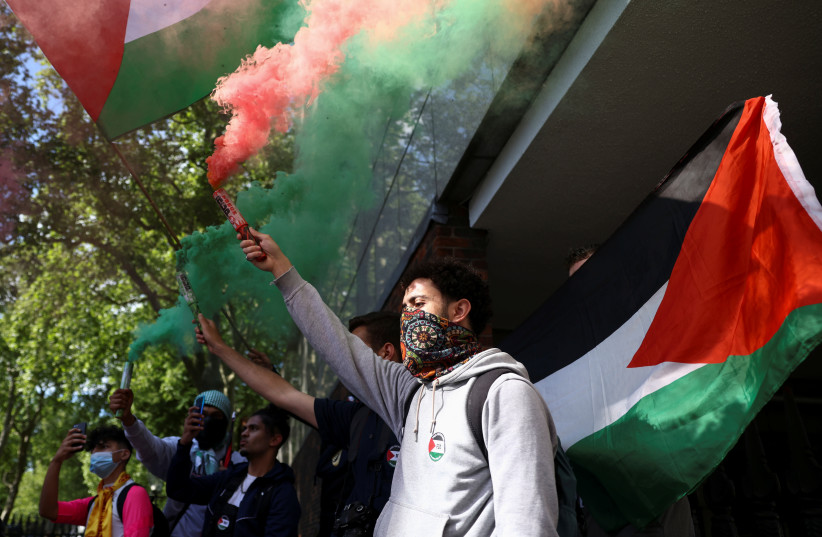A recent study conducted by the Institute for the Study of Global Antisemitism and Policy (ISGAP) and published on its platform has shed light on a significant underreporting of antisemitic incidents during the Israel-Hamas war.
This revelation pointed to a worrying discrepancy between official data and the experiences within Jewish communities, underscoring a hidden crisis in the global response to antisemitism.
According to the study, “In the first three weeks of the war (October 7 to 25, 2023) alone, the total volume of antisemitic incidents increased by 500 percent, compared to the same period last year, including a 330 percent increase in violent antisemitic incidents.”
The study suggested, however, that these figures might not fully capture the scope of the problem.
A considerable number of antisemitic incidents may go unreported or misclassified in the United States, Germany, France, the United Kingdom, and elsewhere, the study said. This is particularly concerning in the post-Soviet countries, where the report noted a striking contrast between government records and the perceptions of local Jewish communities, it said.

“For example, 22 percent of respondents surveyed... among Jewish communities in five countries of the former USSR, claim that the level of antisemitism in their city and country has decreased... However, 14 percent believed that the level of antisemitism has, on the contrary, increased markedly in recent years,” the study said.
Reasons for the disparities
It attributed the disparities in reporting to several factors, including the hesitation of authorities to fully acknowledge antisemitic incidents and the fear within Jewish communities of exacerbating the situation by reporting such events. Furthermore, the study discussed the complex role of social media, which “disseminates xenophobic and antisemitic content widely and almost without restrictions,” exacerbating the issue.
The study was conducted by Prof. Vladimir (Ze’ev) Khanin and Dr. Haim Ben-Yakov.
Khanin is a research fellow at ISGAP and leads the research program on post-Soviet conflicts at Bar-Ilan University’s BESA Center for Strategic Studies. He also serves as the academic chairman of the Institute for Euro-Asian Jewish Studies in Herzliya.
Ben-Yakov is the CEO of the Euro-Asian Jewish Congress and executive director of the Institute for Euro-Asian Jewish Studies in Herzliya.
Ben-Yakov is the CEO of the Euro-Asian Jewish Congress and Executive Director of the Institute for Euro-Asian Jewish Studies in Herzliya.
